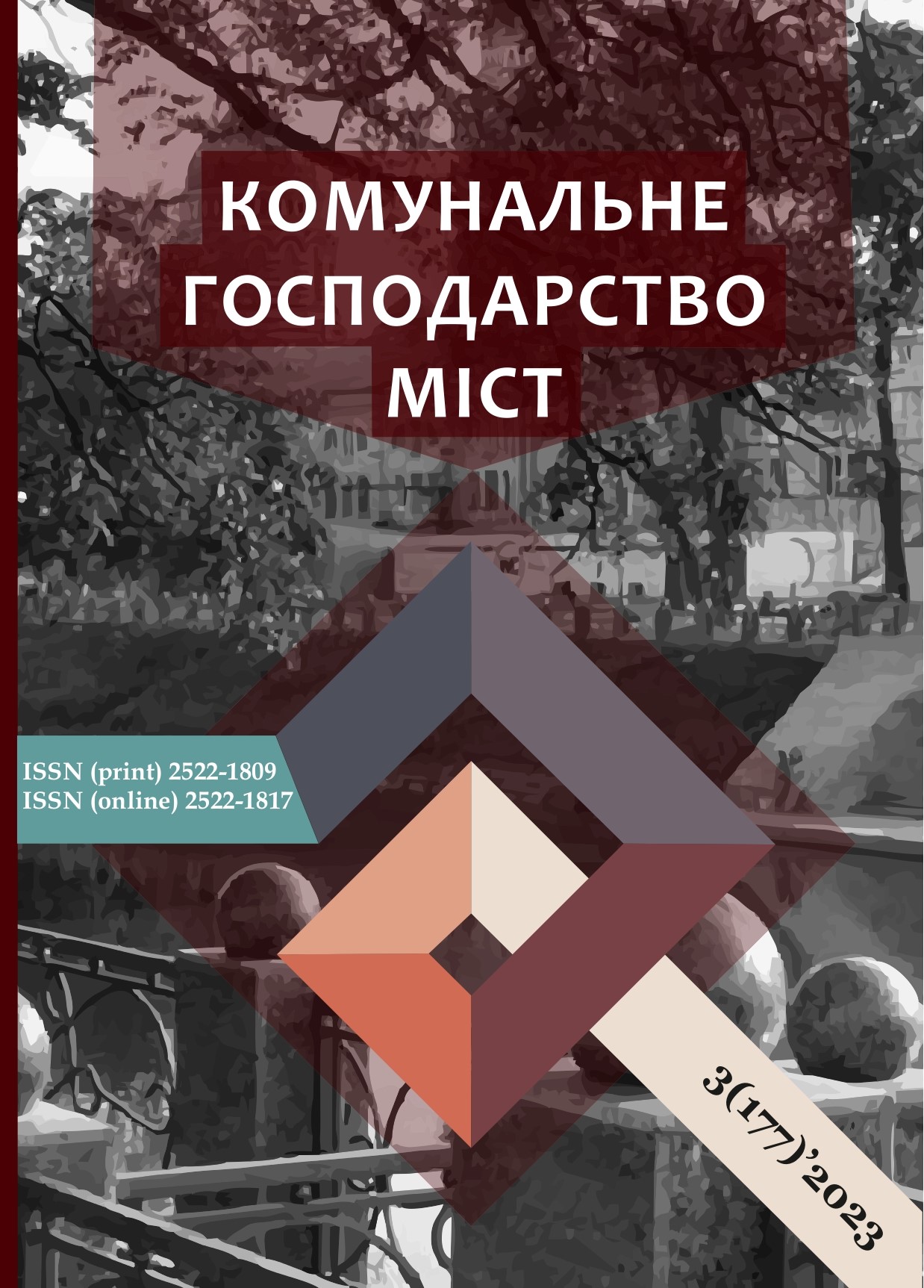APPLICATION OF DIGITAL TECHNOLOGIES IN THE DELIVERY OF CARGO IN INTERNATIONAL TRAFFIC
DOI:
https://doi.org/10.33042/2522-1809-2023-3-177-200-205Keywords:
digital technologies, cargo delivery, international transportation, efficiencyAbstract
The article analyzes the current state of the theory and practice of solving issues related to the delivery of goods by road in international traffic. It is determined that increasing the efficiency of cargo transportation in international traffic is possible through the development and implementation of new information systems and the development of innovative software products to solve the problems of planning and operational management of the transport process. The purpose of this article is to develop an innovative integrated management decision support system for organizing and managing the delivery of goods in international traffic based on the combination of cloud technologies for centralized management of real-time information exchange between participants in the transportation process. The exchange of information between participants in the process of cargo delivery in international traffic using a software product allows to improve the provision of transportation services to the client, increase the level of information exchange, implement real-time management of the cargo transportation process, improve the efficiency of decision-making and immediately respond to any changes in the process.
The article develops an integrated management decision support system for organizing and managing the delivery of goods in international traffic, based on the approach of combining cloud technologies for centralized management of real-time information exchange between participants in the transportation process. The application of the proposed system with the use of appropriate software will improve the quality of transportation services to the client, increase the level of information exchange, implement real-time management of the cargo delivery process and improve the efficiency of management decision-making.
As criteria for assessing the feasibility of using the proposed system, it is customary to consider indicators that are critical to maintaining the required level of sustainability and service and most fully characterize the results of the work performed from the point of view of both the consumer and the carrier.
References
Černá, Lenka, Zitrický, Vladislav and Daniš, Jozef (2017) "The Methodology of Selecting the Transport Mode for Companies on the Slovak Transport Market". Open Engineering, vol. 7, no. 1, pp. 6-13. https://doi.org/10.1515/eng-2017-0002
Manoj Kumar N. & Dash A. (2017) Internet of things: an opportunity for transportation and logistics. In: Proceedings of the International Conference on Inventive Computing and Informatics (ICICI 2017), 23rd to, p. 194-197.
Kejin W, Wenhui S, Aichun Z. (2020) Research on the Application of Electronic Information Technology in the Internet of Things. Journal of Physics: Conference Series, 1570(1):012-067. doi:10.1088/1742-6596/1570/1/012067
Engström, J. et al. (2019). Deployment of Automated Trucking: Challenges and Opportunities. In: Meyer, G., Beiker, S. (eds) Road Vehicle Automation 5. Lecture Notes in Mobility. Springer, Cham. https://doi.org/10.1007/978-3-319-94896-6_13
Marta Waldmann & Karolina Kolinska (2022) "Data Digitisation In Transport Processes," Business Logistics in Modern Management, Josip Juraj Strossmayer University of Osijek, Faculty of Economics, Croatia, vol. 22, pages 79-90.
Sichkarenko, K. O. (2019). The impact of the economy digitalization to transport industry development. Black Sea Economic Studies, (38 (1)), 76-79.
Farquharson, Nadine, Joash Mageto, and Hemisha Makan. (2021) "Effect of internet of things on road freight industry." Journal of Transport and Supply Chain Management 15 (2021): 11.
Aydınocak, Ezgi Uzel. (2021) "Internet of things (IoT) in marketing logistics." Logistics 4.0 and Future of Supply Chains. Singapore: Springer Nature Singapore, 153-169.
Ben-Daya, M., Hassini, E., & Bahroun, Z. (2019). Internet of things and supply chain management: a literature review. International Journal of Production Research, 57(15-16), 4719-4742.
Garcia-Alcaraz, J. L., Maldonado-Macias, A. A., Alor-Hernandez, G., & SanchezRamirez, C. (2017). The impact of information and communication technologies (ICT) on agility, operating, and economical performance of supply chain. Advances in Production Engineering & Management, 12(1), 29–40.
Tijan E, Aksentijević S, Ivanić K, Jardas M. (2019) Blockchain Technology Implementation in Logistics. Sustainability. 11(4):1185.https://doi.org/10.3390/su11041185
Bekrar, A.; Ait El Cadi, A.; Todosijevic, R.; Sarkis, J. (2021) Digitalizing the Closing-of-the-Loop for Supply Chains: A Transportation and Blockchain Perspective. Sustainability, 13, 2895. https://doi.org/ 10.3390/su13052895
Sevidova V. V, Voronova E. M. Kalinichenko A. P. (2021) Applying digital technology to international transport of goods. The 5 th International scientific and practical conference “Science, innovations and education: problems and prospects” (December 8-10, 2021) CPN Publishing Group, Tokyo, Japan. P. 302-306.
Heinbach, Christoph, et al. (2022) "Data-driven forwarding: a typology of digital platforms for road freight transport management." Electronic Markets 32.2: 807-828.
Digitalization in Freight Forwarding – Beyond the Platform Hype. Retrieved from: https://www2.deloitte.com/content/.dam/Deloitte/de/Documents/consumer-business/Deloitte_%20Digitalization%20in%20freight%20forwarding_PoV.pdf
Saoud, Abdelghani, and Adil Bellabdaoui. (2021) "Towards generic platform to support collaboration in freight transportation: taxonomic literature and design based on Zachman framework." Enterprise Information Systems (2021): 1-33.
Downloads
Published
How to Cite
Issue
Section
License
The authors who publish in this collection agree with the following terms:
• The authors reserve the right to authorship of their work and give the magazine the right to first publish this work under the terms of license CC BY-NC-ND 4.0 (with the Designation of Authorship - Non-Commercial - Without Derivatives 4.0 International), which allows others to freely distribute the published work with a mandatory reference to the authors of the original work and the first publication of the work in this magazine.
• Authors have the right to make independent extra-exclusive work agreements in the form in which they were published by this magazine (for example, posting work in an electronic repository of an institution or publishing as part of a monograph), provided that the link to the first publication of the work in this journal is maintained. .
• Journal policy allows and encourages the publication of manuscripts on the Internet (for example, in institutions' repositories or on personal websites), both before the publication of this manuscript and during its editorial work, as it contributes to the emergence of productive scientific discussion and positively affects the efficiency and dynamics of the citation of the published work (see The Effect of Open Access).

